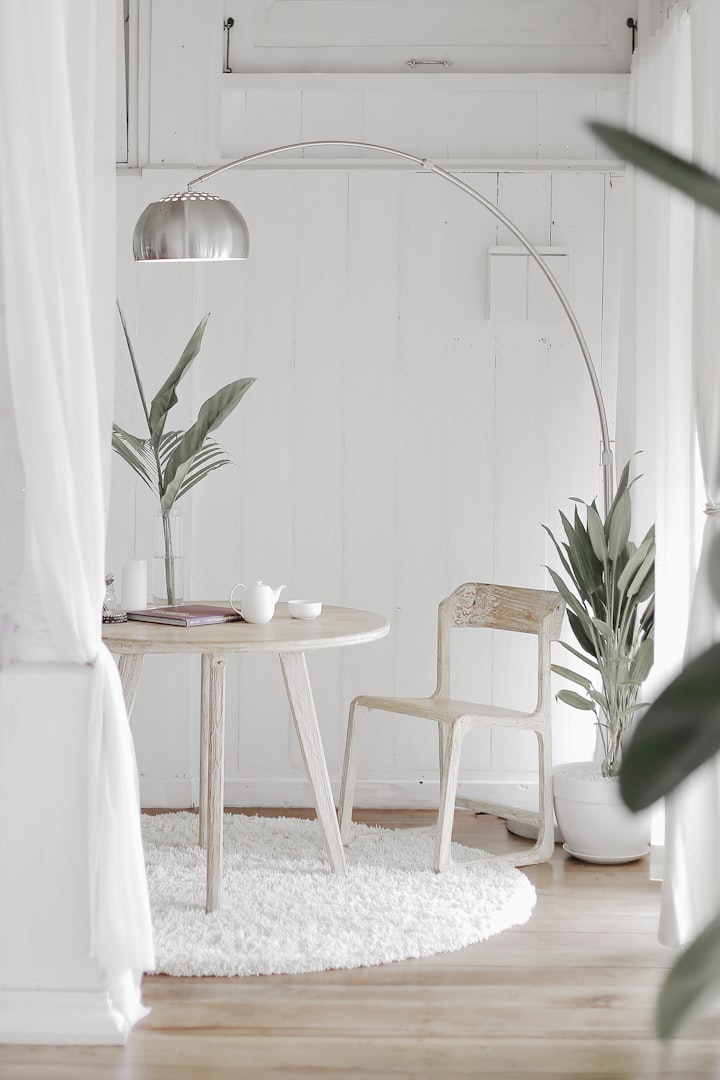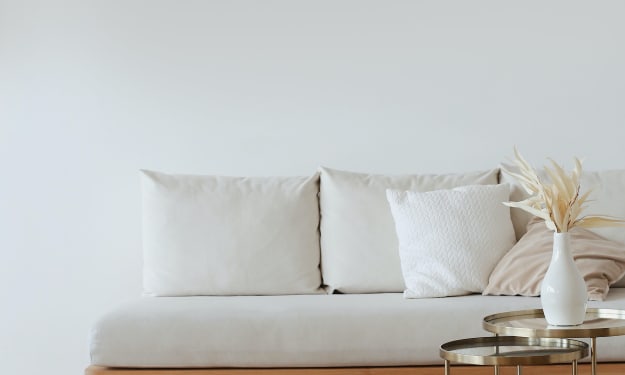Is it Possible for People with ADHD to Be Minimalists?
These strategies might help…

- Attention Deficit Hyperactivity Disorder (ADHD) is a neurodevelopmental disorder that affects both children and adults. It is characterized by symptoms of inattention, hyperactivity, and impulsivity that can impact daily life and activities. Some common symptoms of ADHD include difficulty paying attention, forgetfulness, fidgeting, interrupting others, and difficulty completing tasks.
Perspectives surrounding ADHD have somewhat changed over the years however, there is still some form of stigma attached to the condition and often, people who are considered ADHD are misunderstood.
Here, I want to examine whether it’s possible for people with ADHD to be minimalists.
First, what is minimalism?
Minimalism is a lifestyle philosophy and design trend characterized by simplicity and the deliberate reduction of material possessions.
It emphasizes the importance of focusing on what is essential and removing unnecessary distractions. At its core, minimalism is about living intentionally and freeing oneself from the burden of excess. It's not just about decluttering your physical space, but also simplifying your mental and emotional space.
Minimalism is about finding joy in the things that truly matter and letting go of the rest.
This topic is important because it explores the relationship between ADHD and minimalism, and whether it is possible for individuals with ADHD to adopt a minimalist lifestyle.
It can help to challenge the stigma surrounding ADHD and provide insight into the experiences of individuals with ADHD who are interested in minimalism. Additionally, it can offer strategies and tips for how individuals with ADHD can approach minimalism in a way that works for them. Ultimately, this topic can help to promote a greater understanding and acceptance of individuals with ADHD and their unique perspectives and experiences.
ADHD and Minimalism

- Challenges for people with ADHD in practicing minimalism
Challenges for people with ADHD in practicing minimalism include difficulty with decision-making, impulsivity, and a tendency towards disorganization. Individuals with ADHD may struggle with deciding what possessions to keep or discard, leading to indecision and clutter.
Additionally, impulsivity can lead to impulsive purchases and difficulty sticking to a minimalist lifestyle. Finally, disorganization can make it challenging to maintain a tidy and clutter-free living space.
Benefits of minimalism for people with ADHD include:
- Reduced distraction and increased focus: By removing unnecessary possessions and distractions, individuals with ADHD can create a more structured and focused living environment, which can help with concentration and productivity.
- Simplification of decision-making: Minimalism can help individuals with ADHD by reducing decision fatigue and making it easier to prioritize tasks and goals.
- Increased organization: By decluttering and simplifying their living space, individuals with ADHD can create a more organized and manageable environment, which can help reduce stress and anxiety.
- Reduced financial burden: Minimalism emphasizes the importance of living with less, which can help individuals with ADHD avoid impulsive purchases and unnecessary expenses.
- Strategies for Minimalism with ADHD

- Identifying and prioritizing goals
Identifying and prioritizing goals for someone with ADHD can be challenging, but there are strategies that can be helpful. One approach is to break down larger goals into smaller, more manageable steps.
Related content:
Create a list
Another strategy is to create a list of goals and prioritize them based on their importance and urgency. It can also be helpful to set specific deadlines and create a routine to help stay on track.
Practice mindfulness
Additionally, practicing mindfulness and focusing on the present moment can help reduce distraction and improve clarity when setting goals.
Some strategies for practicing mindfulness as someone with ADHD include:

- Meditation: Regular meditation practice can help improve focus and attention, reduce stress and anxiety, and promote overall well-being. There are many different types of meditation, so it can be helpful to experiment and find what works best for you.
- Mindful breathing: Focusing on your breath and taking deep, intentional breaths can help calm the mind and improve focus.
- Mindful movement: Engaging in gentle, mindful movement practices such as yoga, tai chi, or qigong can help improve focus and reduce stress.
- Mindful eating: Paying attention to the sensory experience of eating, such as the taste, texture, and smell of food, can help improve focus and reduce impulsivity.
By incorporating mindfulness practices into their daily routine, individuals with ADHD can improve their ability to focus, reduce stress and anxiety, and better manage their symptoms.
This is all easier said than done because for people who live with ADHD, day to struggles are real and often theories simplify the difficulties that ADHD people face.

Remember that you don’t need to execute every strategy straight away, start small and build up. You’ll probably go through phases where you can’t practice any of the strategies outlined here but don’t worry, give yourself the time and space to make small changes. Also, remember that minimalism might help you if you are willing to try.
Final Thoughts
In conclusion, while there are certainly challenges for individuals with ADHD in practicing minimalism, there are also many potential benefits to be gained from adopting this lifestyle.
By reducing distractions, simplifying decision-making, increasing organization, and reducing financial burden, minimalism can help individuals with ADHD create a more structured and focused living environment. While practicing minimalism can be challenging, there are many strategies and tips that can help individuals with ADHD approach it in a way that works for them.
By incorporating mindfulness practices, breaking down larger goals into smaller steps, and creating routines and deadlines, individuals with ADHD can improve their ability to focus, reduce stress and anxiety, and better manage their symptoms.
Ultimately, the relationship between ADHD and minimalism is complex, but exploring this topic can help to provide greater insight into the experiences of individuals with ADHD and promote a greater understanding and acceptance of their unique perspectives and needs.
About the Creator
Neurodivergent_ai
I combine my passion for technology, science and art, twisting them all through the lens of my neurodivergence. My aim is to raise awareness about various conditions and invisible disability surrounded by stigma, rejection and disbelief.






Comments
There are no comments for this story
Be the first to respond and start the conversation.